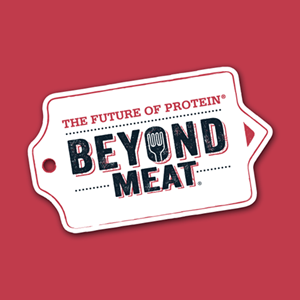In the Courtroom: Kellogg’s Controversy Over Veggie Claims Continues; Dunkin’ And Beyond Meat Hit With Infringement Suit

Kellogg’s Files Motion To Dismiss Suit Claiming Morningstar Veggie Product Label Is Misleading
Kellogg’s is once again asking California judge William Orrick to throw out a lawsuit alleging it misled consumers into believing its Morningstar Farm products are primarily made from vegetables.
The case was originally filed in September 2021 and dismissed in January, at which point the plaintiff’s legal team amended and refiled the case, adding citations from Morningstar’s trademarks referencing the use of the term vegetable and results from a consumer survey it commissioned that claim consumers associate the term “veggie” with “vegetable-based” ingredients, as opposed to “other plant-based” ingredients.”
The plaintiff’s argument centers around the prominence of the term “veggie” on Morningstar packaging, stating it is interpreted to mean the products “are made exclusively or primarily of vegetables, as opposed to other plant-based ingredients.” However, Kellogg’s, argued, and the Court previously agreed, that it is “implausible” any reasonable consumer would draw that conclusion from the packaging alone.
Within Kellogg’s motion to dismiss, the food company cites dozens of previous cases, including a suit brought against Dr Pepper in 2018 that determined the term “diet soda” does not equate to a promise of weight loss, and a case in 2015 against Trader Joe’s that declared no reasonable consumer would believe soy milk is derived from cows, to back up its argument.
“What a reasonable consumer would believe is that Kellogg’s Morningstar Farms products do not contain any meat – which is true,” the motion states. “As the Ninth Circuit has made clear [with its previous ruling], a plaintiff cannot simply ignore the “prevalent understanding” of a labeling term and rely instead on her own idiosyncratic, unreasonable assumptions about the meaning of that term.”
The motion also highlighted the imagery and language on the front of Morningstar’s pack which includes food photography that depicts products that look similar to their meat-based counterparts. Any references or depiction of vegetables beyond the use of the term veggie as a modifier to the respective product name like “Veggie Dog” and “Veggie Chik’n” is absent from that packaging, the order argues.
The motion also directly quoted the court’s opinion from a similar case against Procter & Gamble Co, that states that allegations of this nature must illustrate more than “a mere possibility” that the label could be misunderstood by a few consumers.
The hearing for a ruling on the motion to dismiss is set for June 8, 2022.

Dunkin’ Donuts and Beyond Meat Sued Over Plant-based Breakfast Sandwich Slogan
Plant-based meat maker Vegadelphia Foods filed a lawsuit against Dunkin’ Donuts and Beyond Meat last week, alleging that the food giants stole the Philadelphia-based company’s “Great Taste Plant-Based” slogan when they launched an ad campaign for its co-branded meat-free breakfast sandwich in 2019.
Vegadelphia filed the trademark infringement suit in Florida federal court, stating that the company has owned the mark “Where Great Taste Is Plant-Based,” since 2015. Aiming to prove this wasn’t a matter of coincidence, the suit states that the use of similar font and an almost identical arrangement of the text, in addition to the inclusion of sunray’s behind the words, negate any possibility the alleged infringement wasn’t intentional.
Dunkin’ and Beyond Meat activated a range of celebrity endorsements to promote the product, including an appearance by Snoop Dogg in a nationally-run commercial. The complaint estimates that the food giants made upwards of $135 million over the first six months of sales of its breakfast sandwiches and Vegadelphia is requesting upwards of $2 million to be awarded in compensation.
According to the suit, Vegadelphia served Dunkin’ with a cease and desist in 2020, but the coffee chain did not take any action to remove or suspend the use of the advertisement. Additionally, the suit highlights that Beyond Meat applied to trademark the slogan, but was rejected by the U.S. Patent and Trademark Office due to the “likely confusion” it would cause in relation to Vegadelphia’s mark.
“Even after we brought it to their attention they tried to downplay what had happened, but we continued to see it all over the place,” a Vegadelphia spokesperson said in a statement to Law360. “Their blatant use of our slogan and lack of response gave us the impression that they felt they are above the law, but we will protect what is rightfully ours.”

Motif Foodworks Targets Impossible Foods’ Patent, Says Neither Invented Heme Ingredients
Boston-based Motif Foodworks is challenging the validity of Impossible Foods’ patent in the face of claims it has violated the plant-based meat giant’s intellectual property. The case, which was filed in Delaware District Court in March, alleges that Motif infringed on Impossible’s patents by using a heme ingredient to make its “beef replica product.”
Motif fired back late last month, filing an 87-page petition with the U.S Patent and Trademark Office, requesting it conduct a complete review of Impossible’s patent, which it believes should be revoked, according to the document. The petition cites that “heme-proteins are added to foods to fortify diets of people who do not eat meat or suffer from iron malnutrition” and highlights examples of other patents and scientific literature where heme proteins have been documented in an attempt to prove the protein has been used as a food ingredient long before Impossible claims to have “discovered” its function.
While the companies derive their heme from different types of cells – Motif from cow muscle and Impossible from soybean nodules – both use Pichia pastoris yeast to grow the heme-proteins during the cultivation process. The resulting material is then used to give the plant-based meat a color and aroma comparable to meat-based products.
According to Peter Paredes, a partner at Amin Talati Wasserman who specializes in IP protections across food and biotechnology, Impossible would need to claim and use every heme-containing protein that exists, and reflect that in their patents, for their argument and their patent to be valid.
Impossible and Motif seem to be zeroing in on a single aspect of the contested patent that granted the former ownership over heme-proteins containing a “denatured plant-protein in a fat replica,” which it claims was a novel invention. Motif is arguing that the patent was incorrectly granted, stating that aspect of the “invention” is also “well documented” in prior patents and literature not associated with Impossible.

Gorton’s Seafood Sued Over Tilapia Sourcing Claims
Massachusetts-based seafood company Gorton’s was hit with a class action lawsuit alleging that it has deceptively advertised its tilapia products as being “sustainably sourced.”
The complaint, which was filed in a Massachusetts District Court, states that the company’s seafood is actually farmed in China rather than being caught in an environment that maintains the well-being of the fish. Gorton’s tilapia products are branded as “ecologically sustainable” which the suit said often makes consumers more willing to pay higher prices.
“Tilapia farms in China use primarily an ecologically dangerous method of tilapia production known as pond aquaculture, in which thousands of fish are crowded into shallow ponds,” the complaint states. “To enable the tilapia to survive in these stressful, crowded, and unsanitary conditions, they are routinely treated with antibiotics and biocides.”
The complaint goes on to detail that tilapia is also not native to China and that hundreds of shipments of that species of fish from China were rejected by the FDA between 2007 to 2018 because they contained harmful levels of chemicals and toxins. A hearing date has not yet been scheduled.

Heavy Metal Suit Against Sprout Foods Dismissed
A federal judge in New Jersey tossed out a class action lawsuit against baby food maker Sprout Foods that claimed the company falsely marketed its products as “healthy” and “organic.” The suit is one of multiple cases filed in courts across the country after the U.S. House Committee on Oversight and Reform released a report revealing it found toxic levels of heavy metals in baby food products last year.
While Sprout Foods was among over half a dozen baby food makers whose products contained unsafe amounts of elements like inorganic arsenic, the judge said without linking their claims to a harm, the case is “simply speculation.”
The order for dismissal acknowledges that these products contain heavy metals, and that the presence of those elements created an “increased risk of future harm,” but the decision to dismiss the case was made because the complaint didn’t establish that harm as being “certainly impending,” according to the order.





















